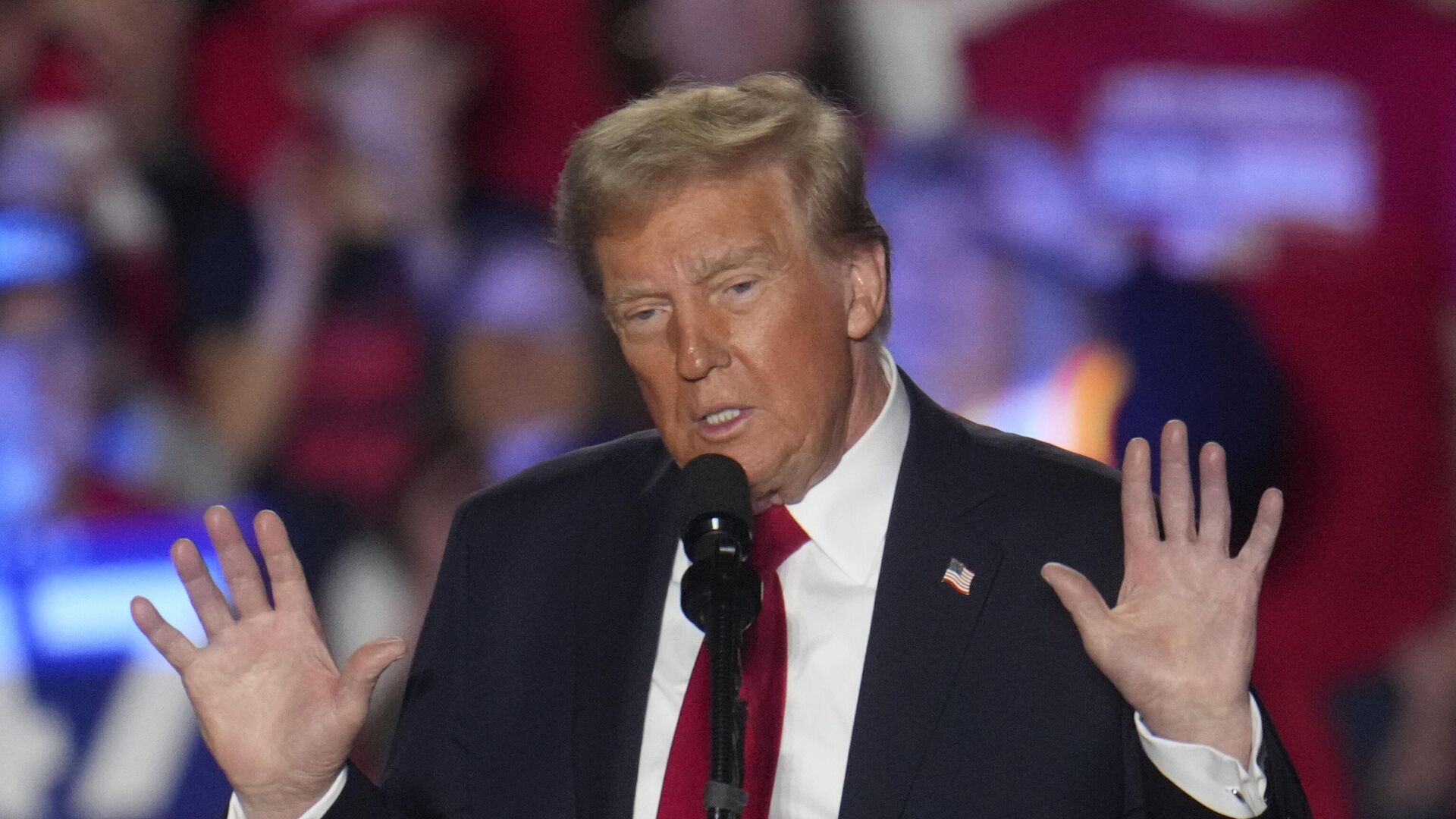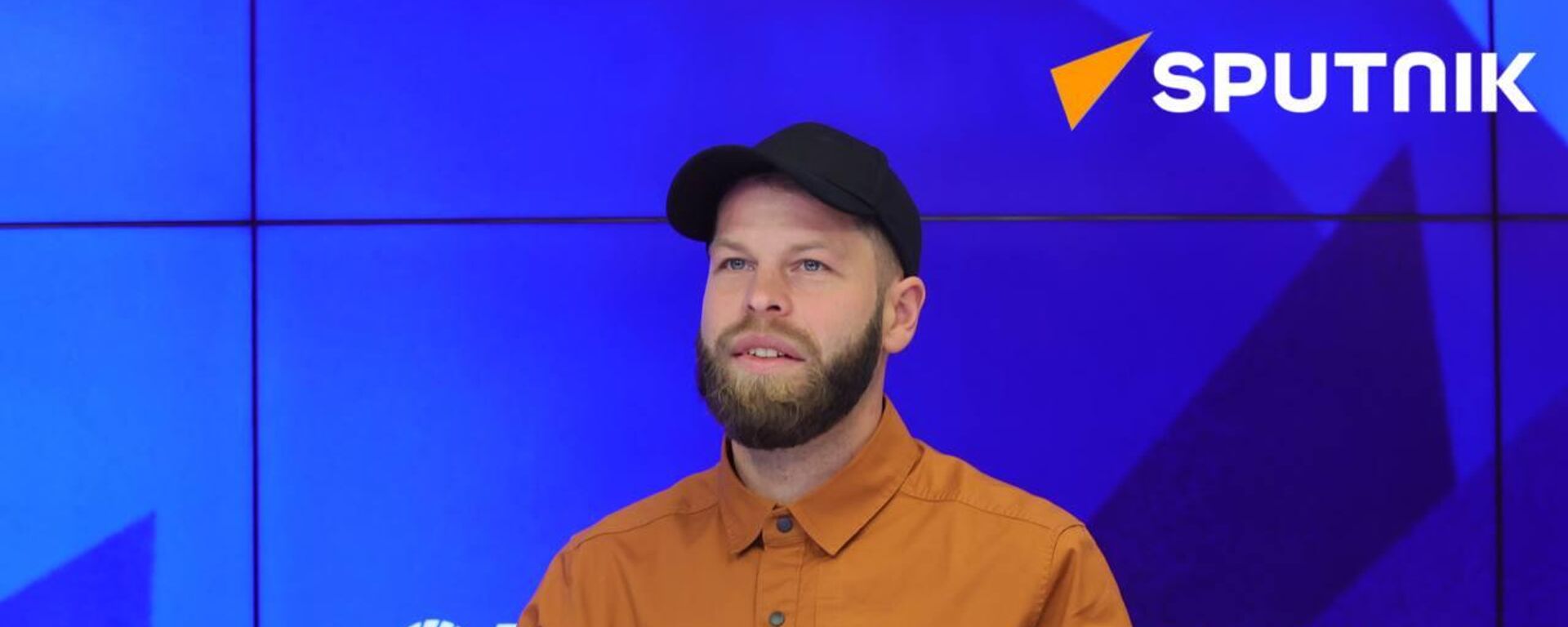Deep State Institutionalised in US, Trump Faces Herculean Task in Clipping Its Wings

© AP Photo / Paul Sancya
Subscribe
The American deep state has been blamed for recent upheavals in and around India. Geopolitical pundits have accused the US intelligence agencies of interfering in the country's parliamentary polls and the recent Bangladesh coup.
The US deep state is firmly entrenched and institutionalised within both major parties, making it a herculean task for Donald Trump to curb its power if he returns to the White House, geopolitical experts close to the ruling Bharatiya Janata Party (BJP) said.
The US deep state is a permanent establishment and works at an institutional level in the country, Abhinav Pandya, the CEO and founder of the Udaipur-based foreign policy and national security think tank Usanas Foundation, believes. Therefore, it would be extremely difficult for Trump to force the deep state to withdraw its support for the Khalistan movement, he noted.
"Besides, the deep state's interference in South Asian domestic politics, particularly around India, has been sown for years. It is a no-brainer that this clandestine network of members of the US government has gone ahead with its plans to create a Christian state in the Northeast, carving out territory from Myanmar, Bangladesh, and India," Pandya told Sputnik India on Tuesday.
The elections in the US could be decided by the deep state but the deep state cannot be decided by the elections, he stated, adding that the decisions about who holds power, policy direction, and necessary administrative changes are largely influenced and shaped by the American deep state.
So if Trump tries to completely reverse and alter what the American deep state has already planned in terms of its agenda and roadmap for global politics, the deep state, comprising the CIA, would not tolerate it, leading to continuous friction between the two parties, Pandya stressed.
So if Trump tries to completely reverse and alter what the American deep state has already planned in terms of its agenda and roadmap for global politics, the deep state, comprising the CIA, would not tolerate it, leading to continuous friction between the two parties, Pandya stressed.
"In such a scenario, the US deep state would do everything possible to get Trump out of its way through various methods. However, having realised that Trump will not allow the deep state to pursue its agenda, the deep state will do its level best to prevent Trump from becoming the next US President," he expressed.
History suggests that American presidents who didn't fall in line with the country's deep state were eliminated either physically or politically, Binay Kumar Singh, a senior research fellow at Dr. Syama Prasad Mookerjee Research Foundation in New Delhi, underscored.
"It is clear that Trump is not in line with the US deep state because the Republic presidential candidate has often taken the strategies of the deep state head-on. That's perhaps why, the US deep state isn't happy with Trump and doesn't want him to be president again," Singh highlighted.
However, Trump will try to backtrack certain policies of the deep state about countries with whom he wants to build up relations, Aadi Achint, founder of the popular geopolitical and defence YouTube channel 'Def Talks' suggested.
Understanding Trump's future challenges with the deep state requires examining his previous presidency, he added.
Understanding Trump's future challenges with the deep state requires examining his previous presidency, he added.
"If you remember, the same people in the American intelligence, and other federal agencies that fueled the anti-CAA (Citizenship Amendment Act) protests in India, are currently supporting or manufacturing issues with New Delhi. It is the same ecosystem that is at work even today," Achint commented.
He observed that Trump's main challenge would be managing numerous pressing issues, leaving little room to address those created by the deep state. While Achint remains cautiously optimistic, he does not expect Trump to make decisions that would grant India the freedom to pursue its growth independently.
The main difference between Democratic and Republican administrations is that Democrats openly cooperate with the deep state to create challenges for other countries, while Republicans use tactics like addressing illegal immigration and imposing tariffs to achieve similar strategic objectives, he highlighted.
"The involvement of the deep state in US politics is interesting today because it backs both sides," Achint concluded.


